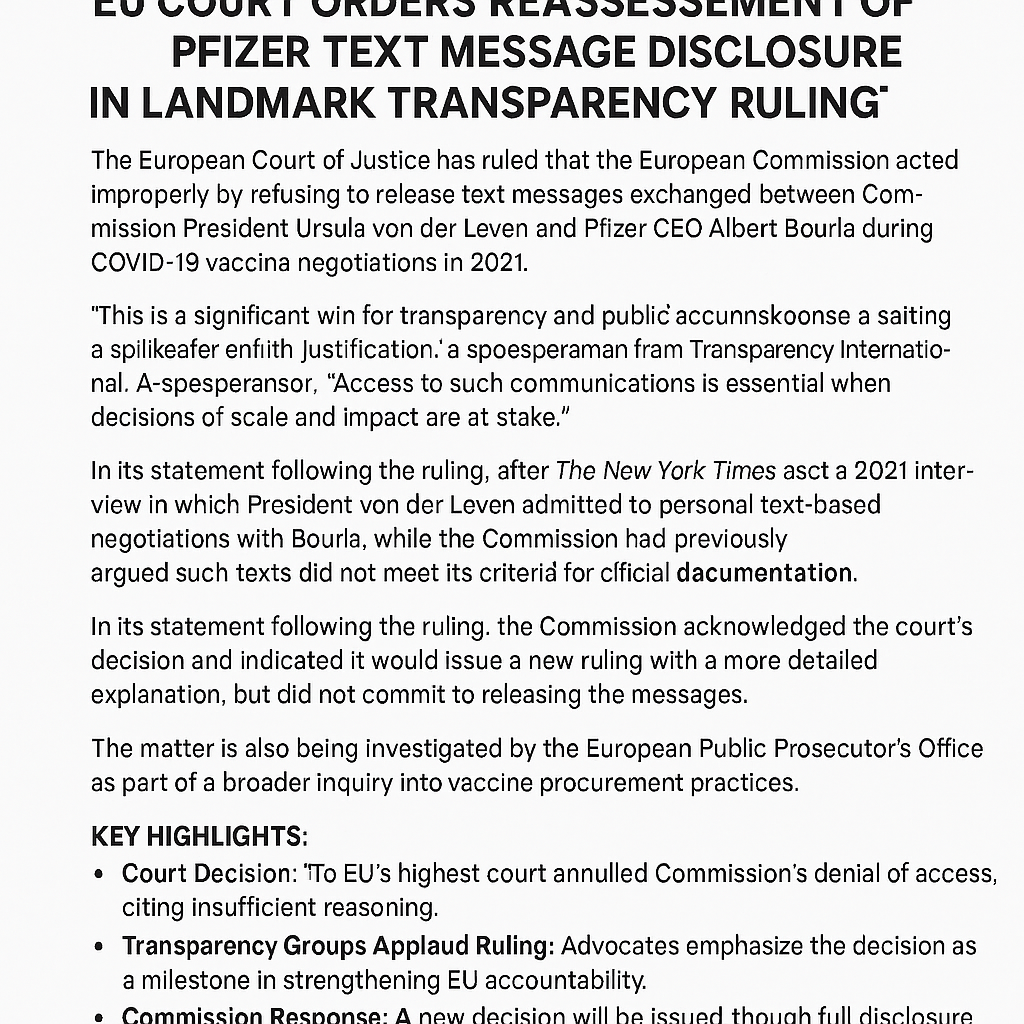EU Disclosure in Landmark Transparency Ruling
Brussels, [May 14, 2025] — The European Court of Justice has ruled that the European Commission acted improperly by refusing to release text messages exchanged between Commission President Ursula von der Leyen and Pfizer CEO Albert Bourla during COVID-19 vaccine negotiations in 2021.
The ruling annuls the Commission’s previous decision to withhold the messages, citing a lack of credible justification. The Commission must now revisit the request, raising the possibility that the texts—sent in the lead-up to a €30 billion vaccine agreement—could be made public.
“This is a significant win for transparency and public accountability in EU governance,” said a spokesperson for Transparency International. “Access to such communications is essential when decisions of this scale and impact are at stake.”
The case gained momentum after The New York Times requested access to the messages following a 2021 interview in which President von der Leyen admitted to personal text-based negotiations with Bourla. The Commission had previously argued that such texts did not meet its criteria for official documentation.

In its statement following the ruling, the Commission acknowledged the court’s decision and indicated it would issue a new ruling with a more detailed explanation. However, it did not commit to releasing the messages.
The matter is also being investigated by the European Public Prosecutor’s Office as part of a broader inquiry into vaccine procurement practices.
Key Highlights:
- Court Decision: The EU’s highest court annulled the Commission’s denial of access, citing insufficient reasoning.
- Transparency Groups Applaud Ruling: Advocates emphasize the decision as a milestone in strengthening EU accountability.
- Commission Response: A new decision will be issued, though full disclosure remains uncertain.
- Broader Context: The case centers on personal negotiations leading to a massive public expenditure during the COVID-19 crisis.
- Ongoing Oversight: The European Public Prosecutor continues to investigate procurement procedures.
This development could have far-reaching implications for transparency standards within EU institutions and for President von der Leyen’s political leadership.